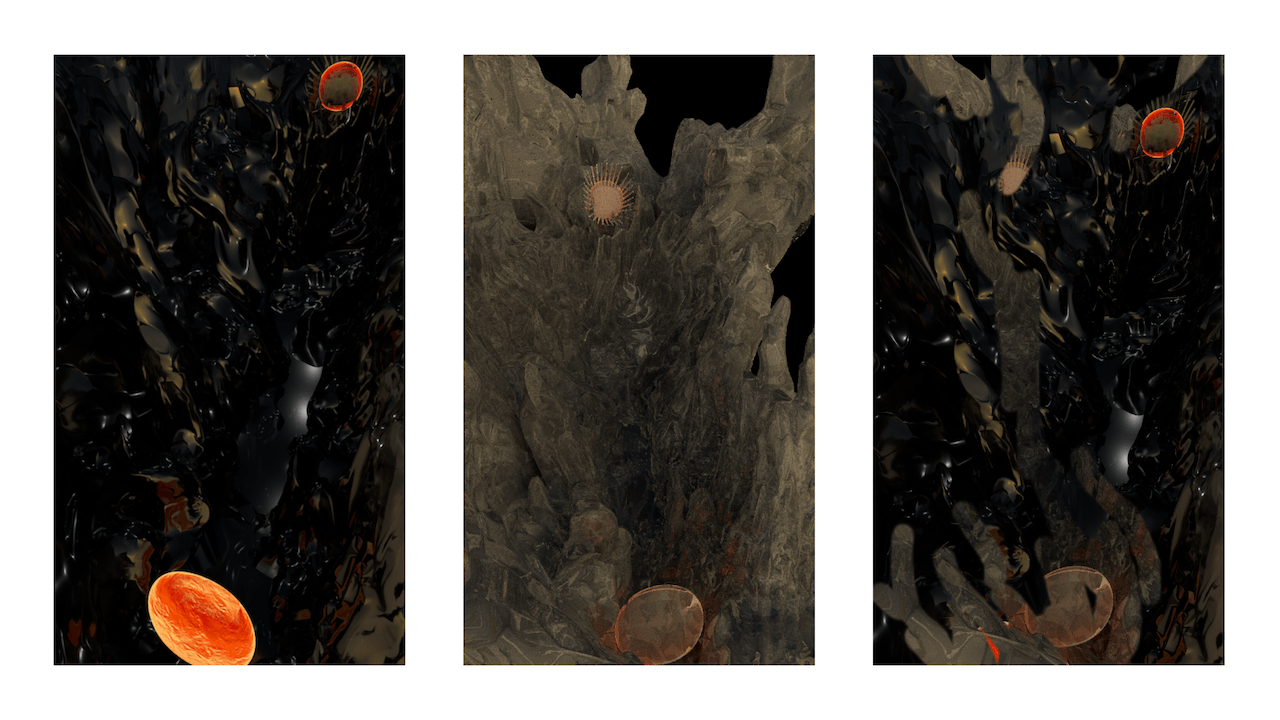
The Woman, The night
Stand and laugh at each other
The shade of a woman, the shadowy night
Stand and laugh at each other
- The laughter stands on a slope
And roars in rejoice and roars in rejoice
The crows burst into screams
Crows into shrieks
They scream at the night
scream at the cliff, a second
Hangs in still, and pours the howls
Pours the holler
It will eat the night, it will eat the night
Eat away my night
-She is full of slopes
She is full of the nights
And cascades the holler
With rejoice and roar
Cascades the slopes
Flocks the crows, cloaks the roar
Dispersed at night
unleashes
- The laughter and a woman stand on a slope
The laughter and a woman
Village -hill, rivulet, within, ruins of the church
Run down and rejoice, run down and rejoice
The shadows and rejoin
So I heard, I haven’t seen
The Woman and The hill
Stand and laugh in rejoin
- With rejoice and holler
I and serpentine
Descend into the roar
- laughter stands on the night
And roars in rejoice and roars in rejoice
I wrote this poem as a reciprocation towards ‘’Woman Laughs at Night,’’ a poem by the Abkhaz writer Neli Tarba (1934-2014). This Abkhazian poem, which I stumbled upon in Georgian translation, talks about a woman laughing at night with such a force that it may sweep over and destroy the night.
A woman laughs at night,
a woman laughs at night,
laughter halts, for a second
hushes, And then
almost engulfs the night…
Excerpt from ‘’Woman Laughs at Night’’ by Neli Tarba. Translated to English from a Georgian translation by Ana Gzirishvili
The writer poses a question to a laughing woman: what’s behind that laugh? What has brought you such joy? Following the laughter of the woman, the narrator drifts to the memories of her own past and how she used to laugh. She starts reminiscing tragic and beautiful moments of her life. The poem concludes:
‘’Let the woman laugh…Let the night's ambiguity rustle the palm trees.’’
By considering laughter as a powerful and liberating inner force, capable of subverting power dynamics, ‘’Woman Laughs at Night’’ reminds me of Helene Cixous’ “The Laugh of the Medusa.” The laughter, once unleashed, is infectious and unconstrained, endlessly reverberating through space and time.
In search of inspiration, while researching a project, I delved into the works of both contemporary and historical female poets from the Caucasus. There is no digital archive available online for such works. After a long and diligent search in Tbilisi State Library I found a Soviet edition of Neli Tarba’s poetry translated into Georgian. It was the first time I heard her name. I was drawn to her particular poem ‘’Woman Laughs at Night’’ and I felt as though we were intertwined in a brief lovely laughter with a snippet of a certain memory blossoming in my head as a landscape image.
The poem sparked a memory, or more correctly - a phantasm of my grandmother’s village in South Ossetia, which I‘ve not seen myself, I’ve only heard about it from my Ossetian grandmother.
The Caucasus region is divided into different parts, each with its own varying conflicts and borders. This leads to a loss of connections between cultures and the artificial disappearance of certain contexts. Diverse material and immaterial cultural heritage is gradually disappearing, becoming more and more homogenous, controlled, and framed by modern nation-states. Unable to physically cross borders across the Caucasus, the only shared cultural heritage we find available is in the Soviet archives, which are themselves loaded with propaganda of a different kind.
The original poem in Abkhazian, the origin source of the fictional laughter in the poem, the laughing women and my grandmother’s village are inaccessible. What is accessible are their shadows, echoes, and reverberations that have traveled across time and space. And in this regard, as Hélène Cixous would wish, Neli Tarba did etch her name into the history of literature. To think of an act of laughter as a medium able to persevere and traverse the barriers sparking unforeseen discourses is truly liberating.
The laughing woman in Neli’s poem echoes her laughter towards the fictional narrator, or a writer, who passes the laughter on to the reader.
I imagine my poem ‘’The Laughter and the Slope’’ laughing with Neli Tarba’s poem ‘’Woman Laughs at Night’’